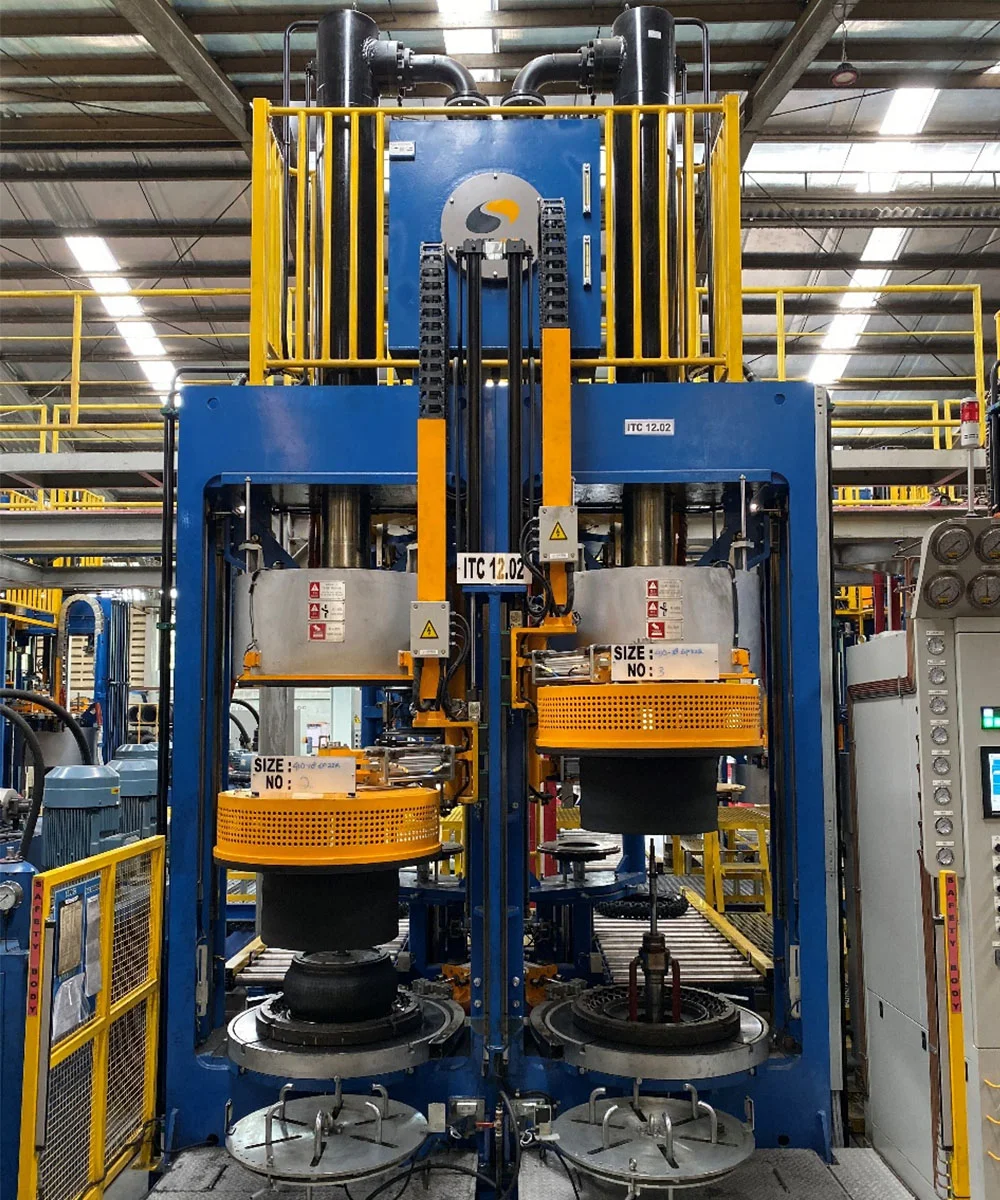- This topic is empty.
-
AuthorPosts
-
2025-10-29 at 2:44 pm #63603
Understanding the Role of Hydraulic Tire Curing Press in Modern Production
In the evolving world of tire manufacturing, hydraulic tire curing presses have become indispensable for ensuring precision, consistency, and speed in production. As the global automotive market demands higher-quality tires with superior durability and performance, manufacturers are turning to hydraulic curing technology to meet stringent standards. This machinery not only molds the tire but also determines its final performance characteristics—making it a critical part of the tire production process.
Hydraulic tire curing presses are used to apply both heat and pressure uniformly to uncured tires, transforming them into fully finished products ready for use. Their hydraulic systems enable smooth operation, high clamping force, and controlled temperature distribution—elements essential for achieving optimal tire quality. In this blog post, SONIWELL, a high precision automatic tire building machine factory, will share the advantages of hydraulic tire curing press for production.
Why Hydraulic Tire Curing Press for Production Outperforms Conventional Systems
Unlike mechanical or pneumatic curing presses, hydraulic tire curing presses for production offer precise pressure control and consistent heat application, ensuring that each tire meets the same performance benchmarks. The hydraulic system provides smoother motion and adjustable pressure levels, allowing manufacturers to fine-tune curing cycles based on tire type, size, and material.
The hydraulic mechanism also enhances safety and reliability. Since it relies on oil pressure rather than mechanical levers or air compression, the system minimizes vibration, wear, and maintenance requirements. This results in longer machine life and lower operational costs. Additionally, advanced models integrate smart control systems for monitoring temperature, curing time, and pressure in real time, further improving production accuracy and efficiency.
Key Advantages of Hydraulic Tire Curing Press in Tire Manufacturing
The adoption of a hydraulic tire curing press brings several notable advantages that directly impact production efficiency and product quality:
-
Uniform Pressure and Temperature Control – Hydraulic systems allow for precise adjustment of pressure and temperature, ensuring even curing throughout the tire and preventing defects.
-
Enhanced Productivity – With fast cycle times and stable performance, hydraulic presses enable continuous tire production, reducing downtime and boosting output.
-
Energy Efficiency – Energy-saving pumps and servo-driven systems optimize power usage, lowering energy costs per tire produced.
-
Improved Safety and Automation – Advanced systems include automatic locks, safety interlocks, and temperature alarms, promoting safer and smarter production environments.
-
Flexible Application Range – Hydraulic presses accommodate various mold sizes and tire types, from small passenger tires to large off-road models.

Integration of Smart Control in Hydraulic Tire Curing Press Systems
The latest hydraulic tire curing press systems integrate digital monitoring and control technologies to improve precision and traceability. These systems use programmable logic controllers (PLCs) and human-machine interfaces (HMIs) that enable operators to adjust parameters, monitor real-time data, and optimize curing cycles.
Predictive maintenance capabilities further enhance reliability by analyzing hydraulic pressure, temperature fluctuations, and system performance to forecast maintenance needs. This proactive approach minimizes downtime and supports lean manufacturing. Some systems even allow remote operation and monitoring, ensuring maximum efficiency and consistent quality across production lines.
Applications of Hydraulic Tire Curing Press in Industrial Tire Production
The hydraulic tire curing press plays a pivotal role across multiple sectors of the tire industry, including:
-
Passenger Car and SUV Tires – Ensuring uniform tread patterns and consistent rubber hardness.
-
Truck and Bus Tires – Providing high structural integrity and durability under heavy loads.
-
Agricultural and Off-Road Tires – Allowing deep tread designs and rugged construction through precision molding.
-
Specialty and Racing Tires – Supporting complex designs that demand strict dimensional control and heat management.
This versatility allows hydraulic curing presses to serve a broad range of industrial applications, meeting the unique demands of each tire category.
Sustainability and Future Trends in Hydraulic Tire Curing Technology
As sustainability becomes increasingly important in manufacturing, hydraulic tire curing press technology is evolving to reduce environmental impact. Modern designs focus on energy recovery, lower hydraulic oil consumption, and quieter operation.
The rise of electric-hydraulic hybrid systems combines the energy efficiency of electric drives with the power of hydraulics, achieving significant energy savings. In addition, the use of biodegradable hydraulic fluids and closed-loop oil systems contributes to eco-friendly operations.
Future trends include AI-assisted process control, where machine learning algorithms automatically adjust curing parameters to optimize energy use and product quality—paving the way toward smart, sustainable tire production.
Conclusion
The hydraulic tire curing press for production stands as a cornerstone of modern tire manufacturing, combining mechanical precision with intelligent control. Its uniform pressure distribution, digital integration, and energy-efficient operation make it indispensable for producing high-performance tires at scale.
As the automotive industry continues to advance, hydraulic curing technology will remain a key driver of innovation, ensuring that tire manufacturers can deliver exceptional quality, efficiency, and sustainability in every stage of production.
http://www.soniwellgroup.com
SONIWELL -
-
AuthorPosts
- You must be logged in to reply to this topic.